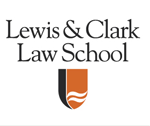Animal Law Review
First Page
167
Abstract
A law and economics approach in the current animals-as-property realm could be the most efficient way to gain protections for the billions of farmed animals that need them now. The wealth maximization theory allows for this because it recognizes human valuation of nonhuman interests. However, evidence shows that a market failure exists because of the discord between public will and animal industry practices. Where human valuation of nonhuman interests is underrepresented in the market and, therefore, a market fix is needed through legislation, animal advocates should evaluate the legislation’s economic impacts. In the case of a ban on gestation crates, as may be the case elsewhere, legislation may actually prove to be economically efficient, and thus gain the support of those who would not otherwise back such legislation. Even when the economic impact is negative, several arguments still weigh in favor of doing a detailed economic analysis. The more immediate positive effects likely to result from this approach outweigh possible negative effects. The sheer magnitude of farmed animal suffering requires that animal advocates begin a direct, offensive approach to the economics of animal welfare measures today.
Recommended Citation
Geoffrey C. Evans,
To What Extent Does Wealth Maximization Benefit Farmed Animals? A Law and Economics Approach to a Ban on Gestation Crates in Pig Production,
13
Animal L. Rev.
167
(2006).
Available at:
https://lawcommons.lclark.edu/alr/vol13/iss1/10

